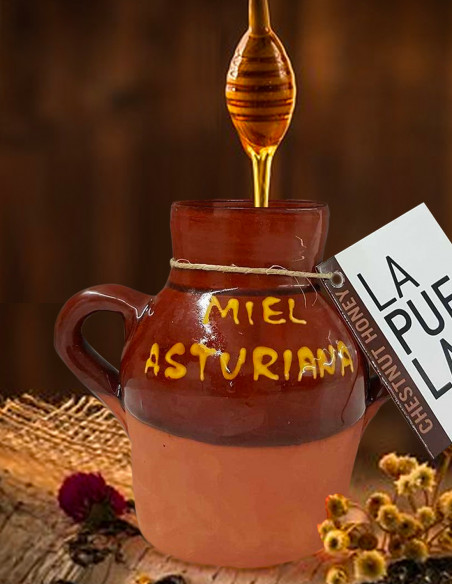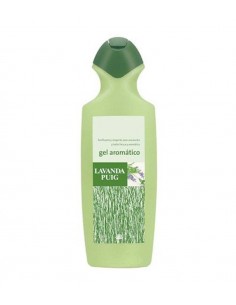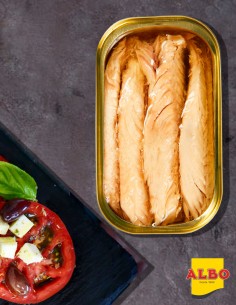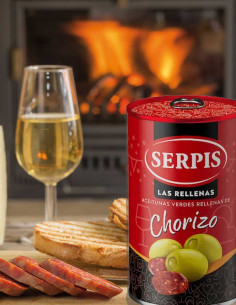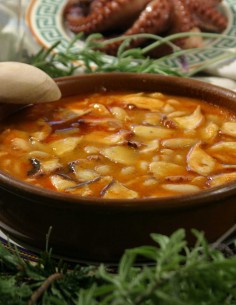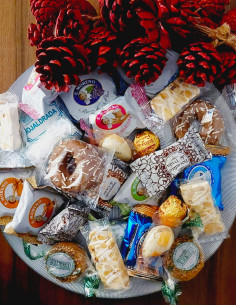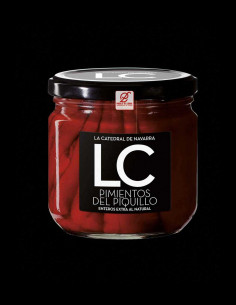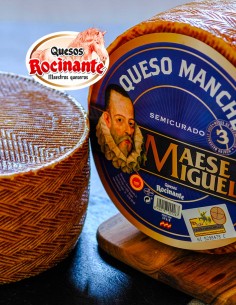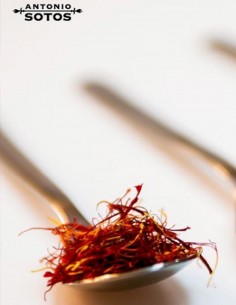Miel de Castaño
The finest honey produced by bees from nectar mainly collected from the chestnut blossom.
ORGANOLEPTIC CHARACTERISTICS:
Color: Light amber.
Aroma: Floral aroma, with a clear and marked woody component.
Taste: Sweet with salty notes.
PRODUCTION AREA: Asturian mountains (North of Spain).
- Weight
- 17.63oz/500g
1 Reviews
Chestnut honey
My first time trying it and it taste as the best honey I have tried before, very organic taste
Customers who bought this product also bought:
$9.89
1 Reviews
Lavanda Puig Bath Gel 750ml
One of the most classic of Spain in this fragrant lavender gel Puig aromas. Invigorating and relaxing, lavender gel Puig is ideal to give a refreshing bath
$5.49
1 Reviews

Filetes de Caballa en Aceite de Oliva.Net Weight: 4.25oz/120g
The nutritious, delicate, and esteemed southern mackerel reaches the category of artwork with its incomparable fillets packaged in totally artisan fashion.
$46.95
Capacity: 4L (29x10 cm)Color: Mahogany
All our enamels are lead and cadmium free in their composition.
Instructions/guide In a first use. Fill the piece with water and leave it heating on the fire for 5 minutes. For later use, wash as usual and heat it on the fire with food.
$5.69
1 Reviews
Aceitunas Rellenas de Chorizo Picante
With the most select stuffing on the market, SERPIS Flavours will delight the most demanding consumers.
$26.49
1 Reviews
Alubias Blancas de FabaNet Weight: 1.1lb
LA TIERRINA VAQUEIRA D.O.P. With its Designation of Origin status since 1990, the Asturian Fava Bean is an essential ingredient for any Asturian cookbook.
The grain, once cooked, remains whole, with smooth skin, a soft center, buttery to the palate with little or no grainy or floury texture.
$10.99
1 Reviews
Nenuco Cologne Splash 600ml
Only Nenuco, smells Nenuco. Nenuco Cologne is, undoubtedly, a fragrance of "lifetime". You fill with memories that you can now share with children. And the Cologne Nenuco is the finishing touch that is essential to provide a pleasant sensation of freshness and well-being in the daily care of the child and the family.
$32.55
$38.29
Protected Geographical Indication "Mantecados de Estepa" Surtido Especialidades: Mantecados, Polvorones, Rosco vino, rosco chocolate, almond and puff pastry specialties..
$10.99
Red Sweet Piquillo Peppers de Lodosa DO in glassRed Piquillo Peppers, small and sweet, with thin and compact flesh, protected under the 'Piquillo de Lodosa' Designation of Origin. We roast them over direct flame, in the traditional way, and then peel them by hand. La Catedral de Navarra prepares its peppers dry, so as not to dilute the intensity of the...
$22.95
1 Reviews
1/4 Wheel Approx. 1.5lb - 1.7lb 1/2 Wheel Approx. 3lb - 3,4lb (10% discount) Whole Wheel Approx. 6.7 lb (15% discount)
Winner “Gran Seleccion 2010” Gold Medal Semi-Cured Manchego.
Pressed paste cheese made from pasteurized Manchega sheep's milk, under the control of the "Regulating Advice of the Designation of Origin of the Manchego Cheese".
Azafran en Hebra- Antonio Sotos Small plastic box: 03oz/1gr of Gourmet Saffron with an intense flavor, aroma and color.
Characteristics of Antonio Sotos Gourmet Saffron: · Prepared with raw materials from all over the world selected through a strict quality control. · We harvest and select the raw material using traditional processes to take the best...

